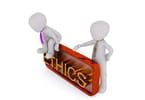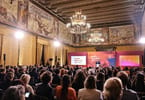Canadians aren’t exactly tossing back celebratory mojitos at the prospect of Americans soon being able to travel freely to Cuba, an island many Canucks covet as their own.
In fact, recently introduced bills in Washington that recommend lifting the 46-year ban on U.S. citizens travelling to Fidel Castro’s fief have many Canadians in a sweat that the island’s laidback calm will be shattered once the Americans – typecast, fairly or not, as loud, crass vacationers – descend.
“I kind of like it being our own little island,” said Randy Pryce, a Toronto-based theatre technician who just returned from an all-inclusive, four-star resort in Playa Costa Verde, north of Santiago. “[Lifting the ban on U.S. tourism to Cuba] will be good for their economy, but not for the people.
“As a tourist, it’s really nice to go somewhere where everyone is treated equally. The Americans could change that. As tourists, they do have this built-in reputation as pushy and demanding. Plus, I think they’d be disappointed in what a four-star Cuban hotel is, as opposed to a four-star American hotel,” said Mr. Pryce, adding their resort was 70 per cent occupied by Canadians.
The Pryces are not alone. Liz Collings, a bank employee in London, Ont., who has vacationed in Cuba 11 times, said a sudden influx of Americans might be uncomfortable for tourists who are used to having resorts to themselves. But, she said, “There’s no doubt it will be good for Cuba’s economy to open the doors. It will help them quite a bit.”
A receptionist at the Hotel Copacabana in Havana, who declined to give her name, said that news that more American tourists were on their way was welcomed among hotel employees.
“It’s good for us because the people will come and there’ll be more tourists here and their families can come,” she said.
Pavel Vidal, an economist at the University of Havana, believes a lifting of the U.S. travel ban would be a boon to Cuba, a nation where poverty is endemic in spite of government food handouts and a number of social services.
“Tourism could take on its role as an economic engine again, if restrictions on travel by U.S. citizens to Cuba are lifted,” he wrote recently in an article for Inter Press Services, a news agency that deals with development issues.
Some observers believe that as many as a million tourists would come from the United States in the first year alone if the ban were lifted, increasing tourism by 50 per cent over the 2008 figure of 2.3 million.
Tourism is Cuba’s largest source of foreign exchange – earning about $2-billion annually – with Canada its leading source of revenue at the moment. About 270,000 Canadians visit Cuba annually, followed by British, then Italians and French tourists.
The Obama administration has already thrown its support behind provisions that would make it easier for Cuban-Americans to visit and send money to family in Cuba. Currently, only charter flights for Cuban-Americans, journalists, some business leaders and politicians, connect the United States and Havana.
Some Canadian travellers are relaxed about encountering Americans on the island.
“Personally, I wouldn’t care one way or another,” said John Wilson, an auditor with Cineplex Entertainment in Toronto.
And in Montreal, Philippe Le Roux, president of VDL2 Communications, welcomes the influx of U.S. tourists and their pocketbooks.
“The people of the United States have the right to travel to Cuba,” said Mr. Le Roux, who has lived in Cuba 25 per cent of the time in each of the last six years.
“I think it must be done, and it will be a very good things for the U.S. as well as Cuba. There is a lot of anger between the Cuban people and the American administration. But not for the American people. I’m pro-freedom, even for the U.S.”
TRAVEL RESTRICTIONS
The United States has restricted travel to Cuba since 1962, three years after Fidel Castro took control of the country.
Technically, unauthorized Americans are forbidden to spend money in the country, a rule that, combined with the lack of U.S.-Cuban flights, drastically limits travel. The ban was designed to limit the number of tourist dollars that could, in theory, be used to sustain the Communist government.
Restrictions imposed by the first Bush administration had limited Cuban travel by Americans to just two weeks every three years. Visits also were confined to immediate family members. In addition, journalists, government officials and full-time professionals attending conferences or conducting research are usually free to travel to Cuba.
The estimated 200,000 U.S. citizens who travel to Cuba each year without a Treasury Department licence can face up to a $7,000 fine. But the vast majority, flying from Toronto, Montreal, Mexico, Bahamas, Cayman Islands and Jamaica, are never questioned or bothered by authorities upon their return to the United States. For example, only 21 people were penalized in 2006.
WHAT TO TAKE AWAY FROM THIS ARTICLE:
- Some observers believe that as many as a million tourists would come from the United States in the first year alone if the ban were lifted, increasing tourism by 50 per cent over the 2008 figure of 2.
- travel ban would be a boon to Cuba, a nation where poverty is endemic in spite of government food handouts and a number of social services.
- Plus, I think they’d be disappointed in what a four-star Cuban hotel is, as opposed to a four-star American hotel,”.






















